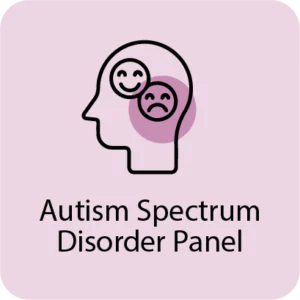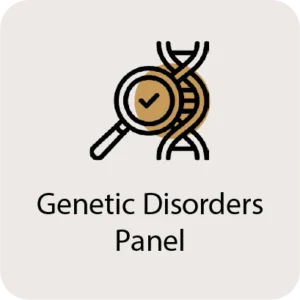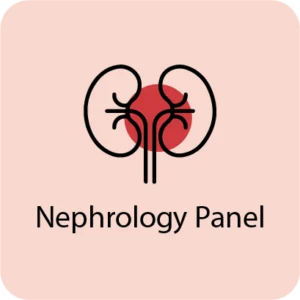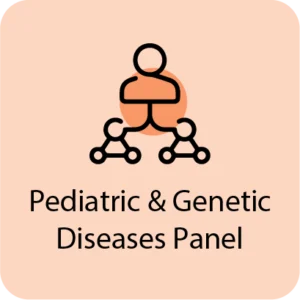Fertility
Fertility Health is a vital aspect of overall well-being. Particularly this is for individuals and couples who are planning to conceive. It encompasses some of the factors that influence the ability to conceive and carry a pregnancy to term. In this informative content, we shall explore the essentials of fertility health. This shall include understanding fertility, common factors affecting fertility, lifestyle considerations, and proactive steps to optimize reproductive wellness.
Fertility health shall in all refer to the capacity for conceiving and sustaining a pregnancy-like condition. Both men and women are to play crucial roles in fertility, and several factors influence reproductive health:
- Reproductive Anatomy and Physiology: Understanding the female and male reproductive systems, like sperm production, ovulation, and the menstrual cycle. This is a fundamental way to grasp fertility health.
- Hormonal Balance: The hormones are to play a key role in regulating reproductive function. Imbalances in hormones. Like progesterone, estrogen, testosterone, and follicle-stimulating hormone (FSH) that can impact fertility.
- Age and Fertility: Fertility declines with age in both men and women. Women are most fertile in their 20s and early 30s. While some of the men might experience a gradual decline in sperm quality and quantity with age.
- Common Causes of Infertility: Infertility can result from various factors, like ovulatory disorders, sperm abnormalities, hormonal imbalances, tubal blockages, and endometriosis. Some of the lifestyle factors like obesity, smoking, and excessive alcohol consumption.
Lifestyle Factors Affecting Fertility
Several lifestyle factors can influence fertility health:
- Nutrition: A balanced diet that is well rich in fruits, whole grains, vegetables, lean proteins, and healthy fats. This shall provide essential nutrients for reproductive health. Some of the vitamins and minerals, like zinc, folic acid, and omega-3 fatty acids, are particularly important for fertility.
- Weight Management: Sustaining a healthy weight is needed for fertility. Obesity and underweight can further disrupt hormonal balance and impair reproductive function.
- Exercise: Regular physical activity shall promote overall health. This might improve fertility. However, an excessive amount of exercise can negatively impact fertility, especially in women.
- Stress Management: Chronic stress can further affect hormone levels and disrupt the menstrual cycle. Some potentially impairing fertility. Condition like stress-reduction techniques like mindfulness, meditation, yoga, and relaxation exercises can be beneficial.
- Smoking and Alcohol: Smoking, as well as excessive amount alcohol consumption, can harm reproductive health in both men and women. Quitting acts of smoking and moderating alcohol consumption can enhance fertility outcomes.
- Environmental Exposures: Exposure to pollutants, environmental toxins, and certain chemicals can interfere with reproductive function. Minimizing exposure to harmful substances can help in protecting fertility.
Proactive Steps to Optimize Fertility Health
- Preconception Counseling: Seeking preconception counseling with a healthcare provider that can help an individual to identify potential risk factors. This is for infertility and receive personalized recommendations for optimizing fertility health.
- Regular Health Check-ups: This includes gynecological exams for women and reproductive health assessments for men. Some can detect any underlying conditions that may affect fertility.
- Fertility Awareness: Tracking menstrual cycles, monitoring ovulation, and using fertility awareness methods. This can help an individual to identify their most fertile days and optimize timing for conception.
- Seeking Support: For some of the individuals who are experiencing issues in conceiving, seek immediate support from a fertility specialist or reproductive endocrinologist. This can all provide access to diagnostic testing, fertility treatments, and personalized care.
- Maintaining Open Communication: Sort of open communication with partners about fertility goals, concerns, and expectations is well essential. For further navigating the fertility journey together and supporting each other emotionally.
Nurturing Fertility Health By LifeCode
As healthcare providers might be well-specialized in reproductive health. We do understand the importance of fertility health in individuals and couples who are planning to conceive. Our main goal is to provide comprehensive support and guidance in helping individuals optimize. This goes well as per reproductive wellness.
Understanding Fertility Health:
- Fertility health shall all refer to an individual’s or couple’s ability. This goes well with conceiving and sustaining a pregnancy to term. It shall encompass various biological, environmental, hormonal, and lifestyle factors. This condition shall further influence reproductive health. By providing education on these factors. The healthcare providers shall all aim to empower individuals with knowledge and resources for optimizing their fertility health.
Reproductive Anatomy and Physiology:
- Understanding those female and male reproductive systems is much needed for optimizing fertility health.
- This shall all include knowledge of the menstrual cycle, ovulation, and sperm production. Including the process of fertilization. Healthcare providers are to offer information on how these processes work and how they can impact fertility.
- It also helps individuals in making informed decisions about their reproductive health.
Common Causes of Infertility:
- Infertility can arise from a variety of factors, like ovulatory disorders, hormonal imbalances, sperm abnormalities, and pelvic conditions (like endometriosis or polycystic ovary syndrome).
- Lifestyle factors include obesity, smoking, and excessive alcohol consumption. By further educating individuals about such common causes.
- Healthcare providers can further help them understand potential barriers to conception. To further explore appropriate treatment options.
Diagnostic Testing for Infertility:
- Diagnostic testing plays a crucial role in identifying potential causes of infertility. This may include hormone testing while assessing ovarian function and hormone levels, and semen analysis to evaluate sperm quality and quantity.
- It shall be about imaging studies (like ultrasound or hysterosalpingography) to assess the reproductive organs’ structure and function, and other specialized procedures
- By conducting comprehensive diagnostic testing, healthcare providers can tailor treatment plans to address specific infertility factors.
Treatment Options for Infertility:
- Treatment options for infertility vary depending on the underlying cause and individual circumstances.
- These may include fertility medications for stimulating ovulation or enhancing production, intrauterine insemination (IUI) to facilitate sperm placement directly into the uterus, in vitro fertilization (IVF) to fertilize eggs outside the body
- It shall be about transferring those embryos into the uterus, surgical interventions to correct anatomical abnormalities
- Further on assisted reproductive technologies (ART) like egg or sperm donation and gestational surrogacy.
- Healthcare providers might all work closely with individuals and couples to determine the most appropriate treatment approach which is based on their needs and preferences.
Lifestyle Factors Affecting Fertility:
- Lifestyle factors can further significantly impact fertility health.
- Sustaining a healthy weight, eating a balanced diet rich in nutrients, exercising regularly, managing stress
- Making sure you avoid smoking and excessive alcohol consumption, and minimizing exposure to environmental toxins are all important aspects of optimizing fertility health.
- Healthcare providers shall all offer guidance and support to help individuals adopt healthy lifestyle habits that can positively influence their reproductive wellness.
Nutrition and Fertility:
- Nutrition is known to play a crucial role in supporting reproductive function and hormone balance.
- Healthcare providers shall offer personalized nutrition counseling to help individuals optimize their diets for fertility health.
- It all includes recommendations for consuming foods that are rich in vitamins, antioxidants, minerals, and healthy fats that might support reproductive health.
- Further on addressing nutritional needs, healthcare providers can help individuals enhance their fertility potential.
Stress and Fertility:
- Stress can have a significant impact on fertility health.
- This shall affect hormone levels and menstrual cycles.
- Healthcare providers might all offer strategies for managing stress and promoting emotional well-being during the fertility journey.
- This might also include mindfulness techniques, counseling, relaxation exercises, and participation in support groups.
- Further, in addressing stress management, healthcare providers might all aim to help individuals cope with the emotional challenges of infertility. This shall optimize their fertility outcomes.
Reproductive Age and Fertility:
- Reproductive age is known to play a critical role in fertility health
- As fertility declines with age in both men and women.
- Healthcare providers shall educate individuals on the impact of age on fertility and reproductive health
- This shall all emphasize the importance of family planning and fertility preservation options like egg freezing for individuals who might further wish to delay childbearing.
- By further guiding reproductive age and fertility, healthcare providers empower individuals to make informed decisions about their fertility journey.
Male Fertility Health:
- Male fertility health is an essential aspect of reproductive wellness.
- Healthcare providers offer comprehensive evaluation and treatment for male infertility, addressing factors that can affect sperm quality and quantity.
- This may include lifestyle modifications, medical interventions, and specialized testing to optimize male fertility.
- By addressing male fertility health, healthcare providers support couples on their fertility journey and increase their chances of achieving a healthy pregnancy.
As healthcare providers specializing in reproductive health, we are dedicated to supporting individuals and couples on their fertility journey. Through education, diagnostic testing, personalized treatment options, and lifestyle guidance. We shall all aim to empower individuals to optimize their fertility health and achieve their goals of conception. We are committed to providing compassionate care and support throughout the fertility journey, and we invite you to partner with us on this important path to parenthood.
| Categories | Conditions Observed |
|---|---|
Breast cancer | Ductal Carcinoma (Breast) |
|
|
Cancer | Ovary Neoplasm |
| Testicular Neoplasm |
|
|
Cardiovascular | Prothrombin (G20210A Mutation) |
|
|
Digestive system | Constipation |
| Familial Intrahepatic Cholestasis |
|
|
Drug Reactions | Congenital Heart Defect due to Maternal Periconception – SSRIs |
| Reactions with the use of antidepressants (SSRI) |
|
|
Endocrine system | Hyperthyroidism |
| Thyrotoxicosis |
| Transient Neonatal Diabetes |
|
|
General | Longer Menstrual Cycle Duration |
| Menstrual Migraine |
|
|
Hematologic system | Congenital afibrinogenemia |
|
|
Hereditary diseases | Fragile X Syndrome |
|
|
Hormone | Anti-Müllerian hormone (AMH) |
| Dihydrotestosterone (DHT) |
| FSH deficiency |
| Luteinizing Hormone (LH) |
| SHBG levels |
|
|
Hormones | Estradiol |
| Inhibin |
| Isolated Follicle Stimulating Hormone Deficiency (FSH) |
| Testosterone |
|
|
Immune system | Anti-Beta-2-Glycoprotein Antibody |
| Antiphospholipid Antibody Syndrome |
| Antithrombin Deficiency |
| Defect in Thyroid Hormonogenesis |
| Factor V Leiden Mutation |
| Mutation of the SERPINE1 Gene (PAI-1) |
| Prolactin Promoter Polymorphism |
| Protein C Deficiency |
| Protein S Deficiency |
|
|
Metabolic | Ceruloplasmin |
|
|
Methylation | MTHFR 1298 mutation (rs1801131) |
| MTHFR 677 mutation (rs1801133) |
|
|
Psychiatric | Postpartum depression |
|
|
Reproductive system | Azoospermia |
| Azoospermia não obstrutiva |
| Endometriosis |
| Erectile Dysfunction |
| Erectile Dysfunction after Radiotherapy for Prostate Cancer |
| FSH levels |
| Female Infertility |
| Gestational diabetes |
| In vitro fertilization |
| Increased Excitation Levels |
| Infertility in Endometriosis |
| Intra-Hepatic Pregnancy Cholestasis |
| Male infertility |
| Male precocious puberty |
| Neural Tube Defect |
| Oligozoospermia |
| Ovarian Hyperstimulation Syndrome |
| Ovarian Response to Hormonal Stimulation |
| Pelvic Organ Prolapse |
| Peyronie’s disease |
| Polycystic Ovary Syndrome |
| Pregnancy |
| Premature Ovarian Insufficiency |
| Risk of Recurring Pregnancy Loss |
| Sexual Motivation (Female) |
| Spermatocele |
| Spontaneous abortions |
| Teratozoospermia |
| Uterine Fibroids |
| Uterine Fibromyoma |
|
|
Skeletal system (bones) | Development Defects |
|
|
Skin | Hereditary Chronic Mucocutaneous Candidiasis |
|
|
Vitamins need | Riboflavin Deficiency |
What is fertility, and how is it defined in the context of reproductive health?
Fertility refers to the ability to conceive and successfully carry a pregnancy to term. In the context of reproductive health, fertility encompasses both male and female factors that contribute to conception and pregnancy.
What are the common factors that can affect fertility in both men and women?
Common factors that can affect fertility include age, hormonal imbalances, reproductive disorders (such as polycystic ovary syndrome in women or varicocele in men). These lifestyle factors (like smoking, alcohol consumption, and obesity), genetic factors, environmental exposures, and certain medical conditions or treatments.
What is genetic testing, and how does it relate to fertility?
Genetic testing involves analyzing an individual’s DNA to identify genetic variations, mutations, or abnormalities. This might impact fertility, reproductive health, or the risk of passing on genetic conditions to offspring.
Who should consider undergoing a fertility genetic testing panel?
Individuals or couples experiencing infertility or fertility concerns, especially those with a history of recurrent miscarriages. It shall fail assisted reproductive technology (ART) cycles like genetic conditions, or family history of infertility or hereditary disorders. This might consider genetic testing to assess their fertility status and reproductive potential.
Can genetic testing help identify potential risks of passing on genetic conditions to offspring?
Yes, genetic testing can help identify potential risks of passing on genetic conditions to offspring by assessing carrier status for specific genetic disorders. It shall identify chromosomal abnormalities that might affect embryo viability, or screening for genetic mutations associated with hereditary diseases. This might impact future generations.















































































